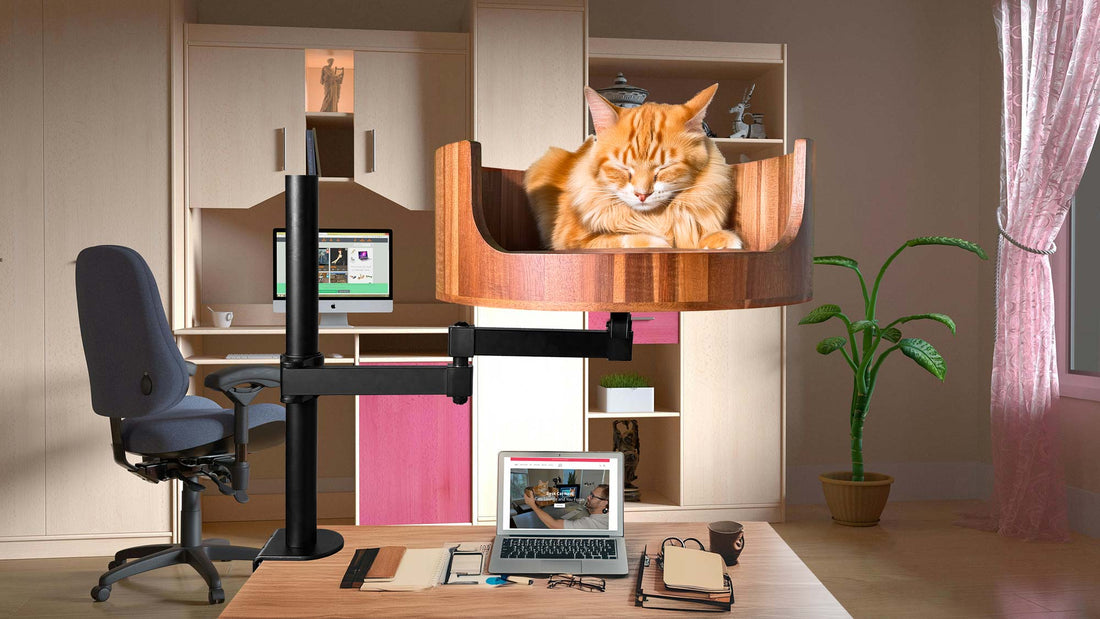
Why Won't My Cat Stop Meowing? Understanding the Behavior
Share
If you've ever found yourself wondering why your beloved feline friend won't stop meowing, you're not alone. Cats are known for their vocal nature, but excessive meowing can be a cause for concern. In this article, we will delve into the reasons behind why your cat may be meowing non-stop, and provide valuable insights on how to better understand and address this behavior.
From attention-seeking to medical issues, there are a variety of factors that can contribute to your cat's incessant meowing. By understanding these underlying reasons, you can learn how to effectively communicate with your cat and provide the necessary care and attention they may be seeking. Through exploring the potential triggers for excessive meowing and learning how to differentiate between normal and problematic behavior, you can create a harmonious and fulfilling relationship with your feline companion. So, if you've ever found yourself at a loss as to why your cat won't stop meowing, read on to gain a greater understanding of your furry friend's behavior.
1. Cats meow to communicate their needs, such as hunger, boredom, or seeking attention.
2. Understanding the context of your cat's meowing can help decipher their behavior and address any underlying issues.
3. Excessive meowing may indicate stress, anxiety, or potential health problems that require attention.
4. Providing mental and physical stimulation through play, toys, and interactive feeding can help reduce unwanted meowing.
5. Creating a comfortable and secure environment for your cat, such as a cozy cat nest, can help alleviate stress and promote contentment, leading to less meowing.
1. Causes of Excessive Meowing
Excessive meowing in cats can be caused by a variety of factors, including medical issues, attention seeking behavior, hunger, stress, loneliness, or simply boredom. It's important to observe your cat's behavior and environment to identify the root cause of their meowing. Consulting with a veterinarian to rule out any potential health concerns is also crucial in addressing excessive meowing.
2. Communication Through Meowing
Cats use meowing as a form of communication to express their needs, wants, or feelings. By observing the tone, pitch, and frequency of your cat's meows, you can better understand what they are trying to convey. For example, a high-pitched meow may indicate excitement or annoyance, while a low-pitched meow could signal distress or discomfort. Understanding your cat's specific vocalizations can help strengthen your bond and improve communication.
3. Training and Behavioral Modification
If your cat's meowing is becoming disruptive or excessive, it may be helpful to implement training and behavior modification techniques. Positive reinforcement, such as rewarding quiet behavior with treats or attention, can help encourage your cat to meow less. Providing environmental enrichment, such as interactive toys or scratching posts, can also help alleviate boredom and reduce meowing. Consistency and patience are key when training your cat to modify their meowing behavior.
4. Seeking Professional Help
In some cases, excessive meowing in cats may be a sign of underlying behavioral issues that require professional intervention. Consulting with a certified animal behaviorist or veterinarian experienced in feline behavior can provide valuable insights and guidance in addressing your cat's meowing. They can help create a personalized behavior modification plan tailored to your cat's specific needs and circumstances. Seeking professional help is essential in ensuring the well-being and happiness of your feline companion.
Frequently Asked Questions
1. Why is my cat meowing constantly?
Constan meowing in cats can be caused by a variety of reasons including hunger, loneliness, stress, or medical issues. It's important to observe your cat's behavior and consult with a veterinarian to rule out any underlying health problems.
2. Will the Desk Cat Nest help reduce my cat's meowing?
The Desk Cat Nest provides a cozy and comfortable space for your cat to relax and feel secure. While it may not directly stop your cat from meowing, it can help provide a sense of security and comfort which may help reduce excessive meowing.
3. How should I introduce my cat to the Desk Cat Nest?
It's important to gradually introduce your cat to the Desk Cat Nest by placing familiar items like toys or blankets inside. You can also sprinkle some treats to encourage your cat to explore and associate the nest with positive experiences.
4. Can the Desk Cat Nest be used for multiple cats?
The Desk Cat Nest is designed to accommodate one cat at a time. If you have multiple cats, it's recommended to provide each cat with their own nest to prevent competition or conflicts.
5. Are there any tips for reducing my cat's meowing behavior?
Some tips for reducing your cat's meowing behavior include ensuring they have enough food, water, and stimulation, providing regular playtime and exercise, creating a routine for feeding and play, and addressing any potential stressors or environmental changes.
In conclusion, the Desk Cat Bed is a valuable choice for addressing your cat's incessant meowing. By providing a comfortable and cozy space for your feline friend to rest and relax, the Desk Cat Bed can help reduce stress and anxiety, leading to less meowing. With its durable construction and stylish design, this product offers both comfort for your pet and convenience for you. Invest in a Desk Cat Bed today to give your cat the peace and quiet they need to thrive.


















































